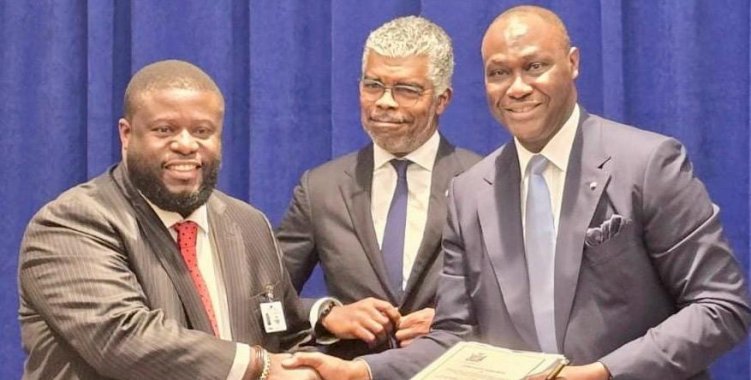"Angola is pleased to partner with AFC on this transformative project, which will deepen Angola's role as a regional logistics hub and boost trade not only with Zambia but with the rest of the world," said Transport Minister Ricardo Viegas D'Abreu at the end of the ceremony, which was also attended by his Zambian counterpart, Frank Tayali.
The concession agreements for the financing, construction, ownership and operation of this mega rail project include "the construction of an entirely new rail line of approximately 800 km to connect the Benguela Railway at Luacano, Angola, to the existing Zambian rail line at Chingola," and come just days before the US President's visit to Angola, Joe Biden's first to Africa, where this will be a key topic.
According to the statement from the Ministry of Transport sent to Lusa, following the signing of the agreements, another agreement was also signed that will allow AFC to receive funding of two million dollars from the United States Trade and Development Agency (USTDA) to complete the environmental and social studies for the project.
"This funding is the first time AFC will take advantage of USTDA funding, and will facilitate comprehensive environmental and social impact assessments (ESIA) to ensure that the Angola Railway Project is aligned with international best practices and environmental standards," the statement said.
The link between Angola and Zambia is considered one of the most important trade routes in Southern Africa, as it creates a trade corridor "to facilitate the efficient movement of goods and promotes investment in agriculture, electricity, mining, health and digital infrastructure", and is the shortest route "for exports and imports, connecting the main mining regions, agricultural hubs and companies in Zambia and the Democratic Republic of Congo to the port of Lobito", and is considered a "strategic route" for exports from these two countries.
The statement also states that the railway line is expected to create "economic benefits of approximately 3 billion dollars for both countries, reduce atmospheric emissions by around 300 thousand tonnes per year, and create more than 1250 jobs during its construction and operations".
AFC is the lead promoter of the Lobito Corridor, in collaboration with the United States Government, the European Union, the African Development Bank, and the governments of Angola, the Democratic Republic of Congo and Zambia.
"Angola has much to gain in terms of investment opportunities and reputation if in each of its structural projects it follows and implements international best practices in the field of environmental protection", stressed the Angolan Minister of Transport at the end of the ceremony organized by the US Secretary of State, Antony J. Blinken, and the G-7 Partnership for Global Infrastructure and Investment (PGI) of the Joe Biden Government, on the sidelines of the 79th session of the UN General Assembly, taking place this week in New York.







